Forced by the COVID-19 pandemic to adapt to changing restrictions including showroom closures and shifting sales online, most dealers have unlocked new ways of working, many of which will be here to stay.
AM spoke to four senior directors in the sector – Daksh Gupta, CEO at Marshall Motor Group; Paul Hendy, CEO of Hendy Group; Nathan Tomlinson, dealer principal at Devonshire Motors; and Graeme Potts, CEO at Eden Motor Group – to understand some of the positive outcomes the three lockdowns have inspired.
HOW HAS THE SCALING UP OF DIGITAL CHANGED THE WAY YOU WORK?
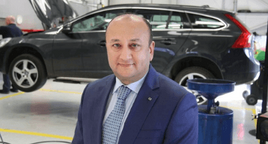
Daksh Gupta: If you had said to me in January last year when our business was flying, everything you sell would be done without people coming into your showroom, I would have said ‘you’re joking’. We sold almost 7,000 cars in January this year which is just incredible. Our industry has proved that it can be adaptable, entrepreneurial and innovative.
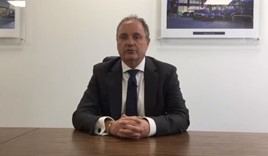 Paul Hendy: The whole industry has moved 10 years in 10 months. If you could not sell online before, you have had to now, the whole industry has had to adapt at speed but we have done so brilliantly. Sales executives realised they still have an important role to play. Digital complements what they are doing.
Paul Hendy: The whole industry has moved 10 years in 10 months. If you could not sell online before, you have had to now, the whole industry has had to adapt at speed but we have done so brilliantly. Sales executives realised they still have an important role to play. Digital complements what they are doing.
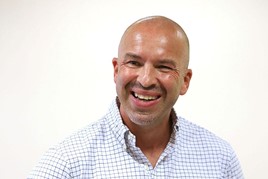 Nathan Tomlinson: The lessons we’ve learned from shifting vehicle sales activity away from the showroom and into people’s homes, via a combination of digital and the traditional, is by far the best learning experience we’ve had as a result of the pandemic. Equally, it’s been the most rewarding and something that we now have ingrained in our business DNA. For example, we use a clever product called KwikCast to stream live video to a customer’s phone.
Nathan Tomlinson: The lessons we’ve learned from shifting vehicle sales activity away from the showroom and into people’s homes, via a combination of digital and the traditional, is by far the best learning experience we’ve had as a result of the pandemic. Equally, it’s been the most rewarding and something that we now have ingrained in our business DNA. For example, we use a clever product called KwikCast to stream live video to a customer’s phone.
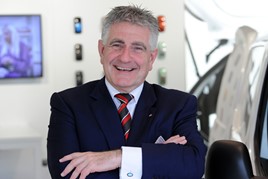 Graeme Potts: It has definitely challenged our thinking and accelerated our development of the integration between the online and the physical world. Some of the people now working in our digital channels are demonstrably the top performers in our company. I am not sure that would have come about so quickly had it not been for the lockdown situation.
Graeme Potts: It has definitely challenged our thinking and accelerated our development of the integration between the online and the physical world. Some of the people now working in our digital channels are demonstrably the top performers in our company. I am not sure that would have come about so quickly had it not been for the lockdown situation.
HAS THE DESIRE FOR THE PHYSICAL DEALERSHIP DIMINISHED OR GROWN?
DG: I don’t think we have fully appreciated the comfort people from the viewing, touching and feeling a car, it’s not like buying something off Amazon. While there have been market entrants who have portrayed themselves as being online only, they have realised they can’t do that very easily without a physical presence. As both sides evolve, they will move much closer to each other because that’s what customers want and that’s what they need.
PH: The endgame will be a blend of the physical and online, we are missing that physical experience and so are some of our customers. Some people will want to deal online and we can now do that. Many will do both and some want to undertake the entire process in person in the showroom. There is still a requirement for that brand experience which needs to take place in the physical space.
NT: Almost every enquiry would abort at some stage in a fully digital process. Almost all our customers want or need some form or personal interaction at some stage in their online journey, but it’s rarely the same point. There is no single solution. So, the solution is to make everything available.
GP: The retail car industry will have a physical channel which will be the majority choice for a long time to come. The lockdown and the restrictions have illustrated (the importance of the physical dealership) by the increased volume of activity as we have gone through lockdown one, two and now three, but also the huge number of customers who are in their normal cycle of change who are telling us ‘yes, we will be in when we can come in and visit you?’.
IS HOMEWORKING HERE TO STAY?
DG: This has shown us you can effectively work from home. I don’t think you can replace offices or workplaces completely because of the power of human interaction. Many people found that, all of a sudden, when they couldn’t go into work, they missed it and realised what a significant part of your life work is. So, I don’t ever see that we will choose solely to work from home, but I think there will be a blend.
PH: Had you said a year ago that 90% of our workforce would be working from home and it would be ok, nobody would have believed you. I think employees mixing working at home and the workplace has become much more acceptable.
NT: Homeworking is a real mixed bag. Some individuals, specifically those that are digitally fluent, are extremely productive. Others function productively but create a lot of digital noise in the process. Some just don’t work well at all as they rely on more traditional P2P skills and communication.
GP: We are not enforcing homeworking but if they want to come into work and it is safe to do so, we give them the choice. We will have more flexibility to work from home going forward but we will give people the choice, the most frequent comment that’s made to me at all levels is how much people miss working with their colleagues.
WILL THE TRADITIONAL MEETING BE CONFINED TO THE HISTORY BOOKS?
DG: We switched to weekly virtual meetings of two hours which has proved far more efficient. Previously, we held three conferences a year which typically involved around 500 members of staff. Now, monthly management meetings are held virtually with the last one attracting 388 log-ins with many tuning in together. They have been very powerful.
PH: It will be about delivering that blended approach, we don’t need to drive all over the country to see each other. We have all got hours back into our days. Some of those meetings you may have done every month, you may do once a quarter.
NT: Zoom and Teams meetings have been a huge benefit, but we still have to beware of meetings for meetings sake. Communication has to be balanced and efficient, nobody enjoys a 45-minute video call when a five-minute phone call or a short email would have been more appropriate.
GP: Most of our groups, but particularly our senior executive committee, are having more frequent, but shorter, meetings facilitated by Zoom and that has been a great benefit. We have become much more collegiate in our approach. You would have a monthly review which lasts a day whereas now it’s no more than two hours on Zoom.
ANY FINAL THOUGHTS?
DG: If you went in strong, you came out strong. I think we will also have a bounce back, not as big as the first one, but we will see some sort of recovery. I’m very upbeat about 2021.
PH: The real positive has been the sheer resilience and positive attitude, the care and passion of my team to be there every day and digging in, it has been unbelievably humbling.
NT: We’re currently focused on growth for 2021 and beyond, on-boarding one new brand partner as we speak and hoping to be able to announce another one very soon. Devonshire Motors will emerge from the pandemic looking quite good.
GP: I think vehicle retailing will benefit from pent up demand once the lockdown is lifted. There is a percentage of customers who need a car for the first time or an extra car because of a reluctance to return to public transport and Britons have saved £140bn that would have been spent in the economy over the past 13 months. We will receive a dividend out of those unlocked savings.

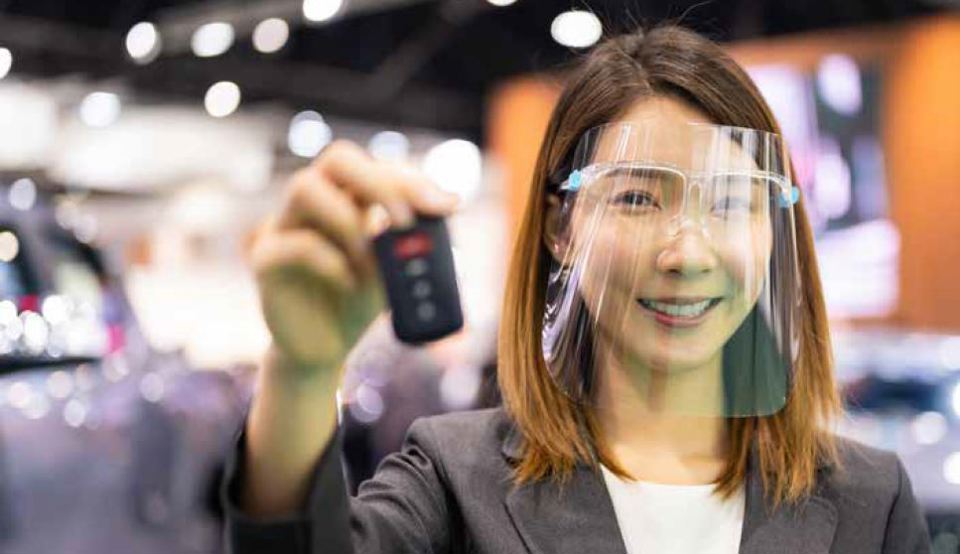













Login to comment
Comments
No comments have been made yet.